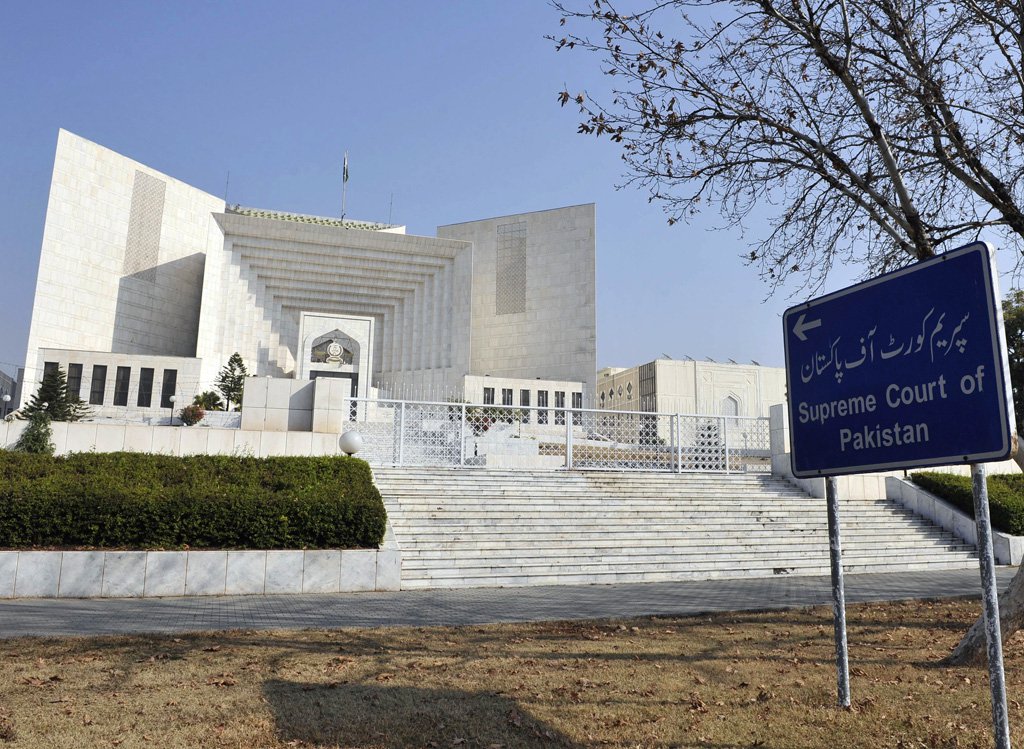
The prime minister’s appearance in the Supreme Court has stirred a debate whether winds of change are blowing through the superior courts against the Pakistan Tehreek-e-Insaaf regime which, until now, had not faced a tough time on the judicial front, at least during the tenure of the incumbent Chief Justice of Pakistan Gulzar Ahmed.
The apparent shift got more pronounced in the unusual nature of the proceedings as Prime Minister Imran Khan was not only summoned but was subjected to grilling by the bench which is always considered to be 'pro-executive' in the bar.
Above all, the dialogue between the bench and the PM in the courtroom was unprecedented, prompting the government functionaries to wonder as to why the bench remained tough on PM Imran.
One section was of the view that the proceedings took tough tones due to the emotional nature of the Army Public School (APS) tragedy, as mothers of deceased children were crying in the courtroom.
Meanwhile, some spectators have pointed towards the nature of the timing of the summon, attributing it to the apparent strained civil-military relationships, which is not as cordial as it used to be a couple of months ago following the appointment of the new DG ISI.
Nevertheless, the lawyers and government functionaries are scratching their heads over the possible reasons for the sudden shift in the behaviour of the bench and are wondering whether the bench will adopt a similar approach against the executive consistently.
Read PM grilled at gruelling APS hearing
The CJP is retiring in February, and it remains to be seen whether he will continue to be tough to the executive next three months.
A quick review of the background and sequence of events that took place in recent times may shed some light on factors that cannot be ignored.
Two days ago, a malicious trend was running against the judiciary on Twitter. Likewise, a division bench of the apex court had remanded Tehreek Labbaik Pakistan (TLP) leader Saad Rizvi bail matter to the Lahore High Court for rehearing. Subsequently, the Punjab government signed a deal regarding his release.
In the three-judge bench, two members, including CJP Gulzar Ahmed and Justice Ijaz ul Ahsan, also happened to be part of the bench that disqualified former premier Nawaz Sharif under Article 62 (1) (f) in Panamagate on the petition filed by the incumbent prime minister.
During the time the PTI regime and Justice Qazi Faez Isa were in clash after the filing of presidential reference in the Supreme Judicial Council against the latter’s removal, these three members of this bench were not among those SC judges who took strong view against the government. In fact, both the judges were signatories of the order that said that Justice Isa should not hear matters related to PM Khan.
Similarly, the same bench while hearing suo motu case did not question the federal government’s plan of action to control coronavirus as it grilled the Sindh government's steps in this matter.
Likewise, the same bench did not restrain the government to take action in line with the sugar commission report. No relief was given to sugar mill owners.
In his first speech in December 2019, CJP Gulzar had hinted at a revised approach to judicial activism, listing the eradication of corruption and maladministration as his priority. However, despite giving harsh remarks and observations against maladministration and federal government functionaries, he did not pass any coercive order.
The top court even facilitated the federal government in a few matters, for instance by granting permission to hold general elections in Gilgit-Baltistan. It also tempered its stance in several cases when it was requested to show judicial restraint.
Read more Zahir Jaffer thrown out of courtroom again
During the hearing of a suo motu case pertaining to the losses of billions of rupees in Pakistan Railways, the CJP on January 28 grilled Railways Minister Sheikh Rashid and observed that he should have resigned after the Tezgam tragedy that had claimed 74 lives. On the same day, Rashid expressed apprehensions over the ongoing judicial activism during a cabinet meeting.
At the next hearing, the CJP showed restraint and did not make any harsh observations against Rashid.
Similarly, during the hearing of a case against the appointment of Air Marshal Arshad Malik as the chief executive officer (CEO) of Pakistan International Airlines (PIA), the apex court again showed restraint.
The CJP-led bench initially grilled the federal government for violating rules by assigning the position to a serviceman to the position. It also suspended the appointment and asked Malik to abandon one of his two posts. On March 18, 2020, however, the AGP convinced the bench to restore Malik as PIA chief, even as government sources revealed the air marshal was unwilling to leave the PAF.
The CJP’s views on corruption appear to remain the same as his first speech. Some analysts even believe that the top functionaries of both the judiciary and the executive are on the same page and see corruption as the biggest issue of the country.
It is being witnessed that now the consensus is being involved in the political leadership, the exercise of public interest litigation on maladministration issues should not be welcomed. Furthermore, civil society has also voiced its disapproval of judicial activism rearing its head again.
Instead of taking notice of the failure of the executive, they say, the judiciary should focus on putting its own house in order.










1732355030-0/BeFunk_§_]__-(41)1732355030-0.jpg)






COMMENTS
Comments are moderated and generally will be posted if they are on-topic and not abusive.
For more information, please see our Comments FAQ